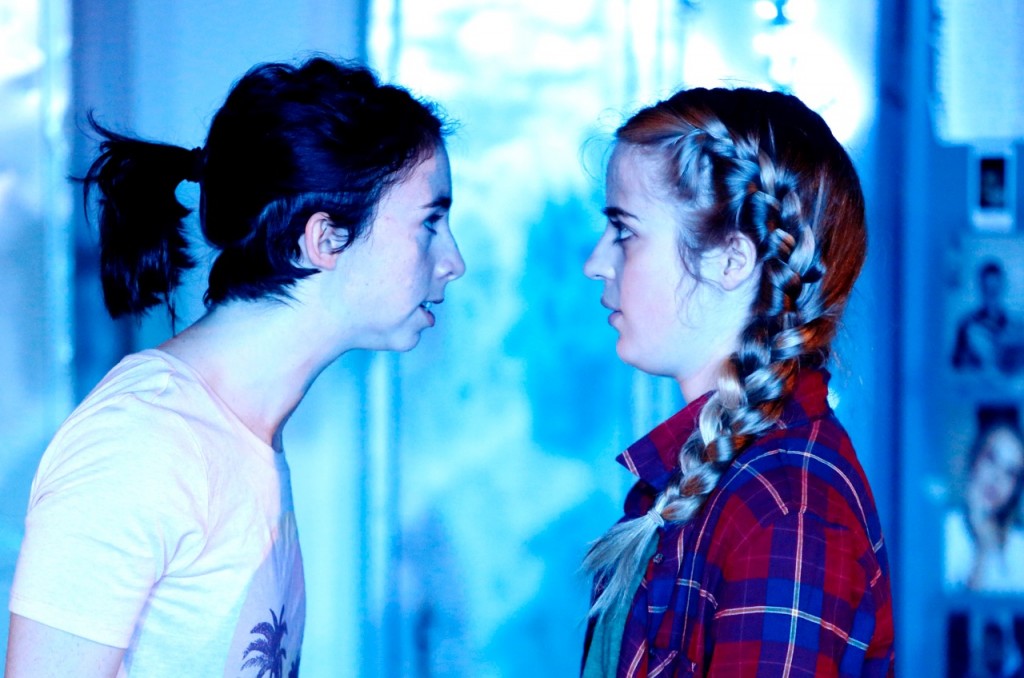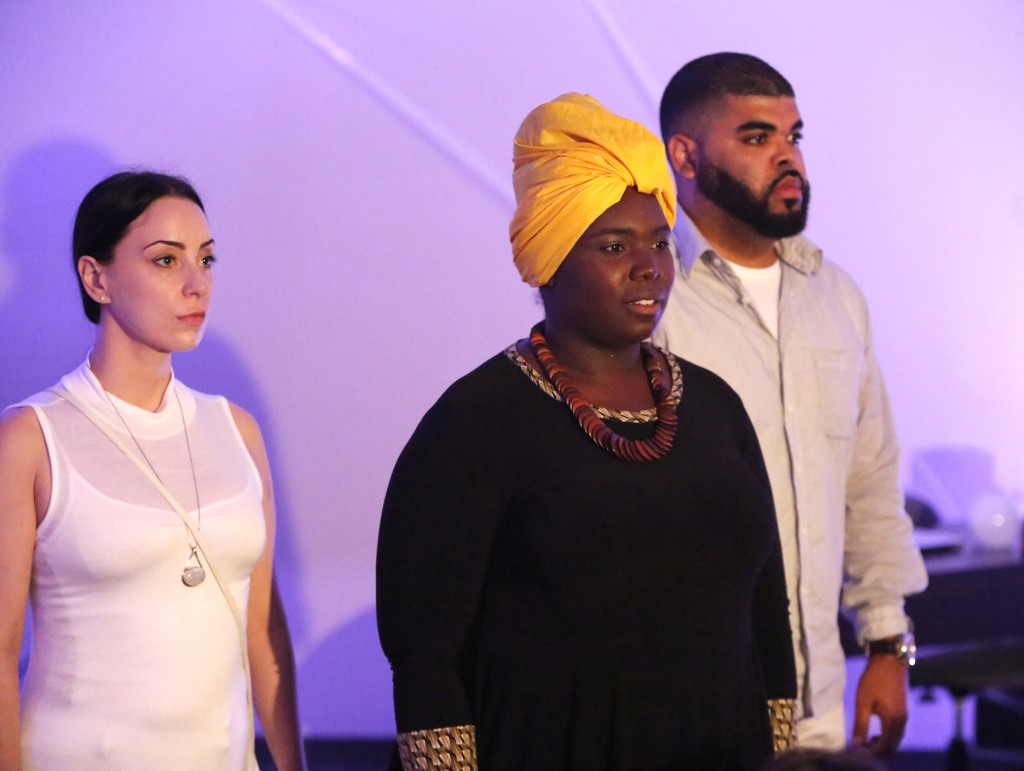At the Italian Cultural Centre (3075 Slocan) until August 20, 2016
artspoints.com or at the door
Heat problems in the Italian Cultural Centre have been solved! Don’t let the warm weather stop you from attending Tremors.
Posted August 14, 2016

Credit: Tim Matheson
Dry Land
Until two years ago, the Tremors Festival used to be Rumble Theatre’s way of presenting the work of emerging theatre companies. Now Rumble chooses the plays, assembles the creative teams and produces the shows. Mentored by some of the city’s finest theatre artists – Lois Anderson, Barbara Clayden, Dani Fecko, Jeff Harrison, Alessandro Juliani, Amir Ofek, Sarah Rodgers and Jovanni Sy – emerging artists (rather than emerging companies) are given a leg up.
Performers Shauna Griffin (Ester) and Anais West (Amy) are great examples of how well that mentorship is paying off. So natural are their performances, you’d swear you are eavesdropping in the swim club’s locker room. “Punch me” is the first clue we have that something’s not right with Amy as she encourages Ester to hit her in the stomach. Oh, pregnant at sixteen. But there’s more going on with Amy who, we find out, encourages her classmates to think of her as a slut. And, surprisingly, we discover life is no picnic for naïve, innocent Ester, either. West is absolutely fearless in the abortion scene: newspapers spread on the locker room floor, blood, groaning and crying. Abortion-by-Google, it’s the way girls die but not in this play. Both Griffin and West bring their characters into such real, sharp focus, it’s easy to forget this is theatre.
But Dry Land, written by Ruby Rae Spiegel, rambles on and on the way a child’s story does. Other characters emerge and then disappear, it seems to end several times and to have no discernible point. It’s so-slice-of-life that, eventually, there’s no dramatic tension. The heat in the unconditioned venue certainly contributed to my disappointment but Dry Land, directed by Laura McLean, left me in serious need of a drink.

Credit: Tim Matheson
Better Angels: A Parable
I’m not sure what makes Better Angels a parable – a simple story told to illustrate a moral principle. Written by Andrea Scott, it seems straight up and realistic: Leila (Julie Disher) and Greg (Chris Francisque) have spent money to bring black woman Akosua (Britney Buren) from Ghana to live-in, cook and clean and care for the couple’s two kids. When Leila demands Akosua’s passport, it’s the tip-off that what we are about to see amounts to 21st century slavery – a situation that happens right here at home. The powerhouse in this show is Buren, a beautiful, big-boned woman with magnetism to match.
Set design by Sarah Mabberley is inventive and very effective: sheets of clear plastic stretched tight to indicate the various rooms. Inexpensive and smart.
Directed by Eleanor Felton, the performance styles, however, don’t match up and that weakens Better Angels significantly. Buren and Francisque both approach their character straight forwardly while Disher’s performance is exaggerated and on-the-nose. We know Leila is nasty and manipulating; her condescension and maliciousness don’t require signalling.
What does Better Angels tell us? That while slavery stills exists, these ‘slaves’ are not without resources and the backlash can be swift and tech-savvy. You can hear the audience inwardly cheering when Akosua, not waiting around for an angel to rescue her, finally fights back.

